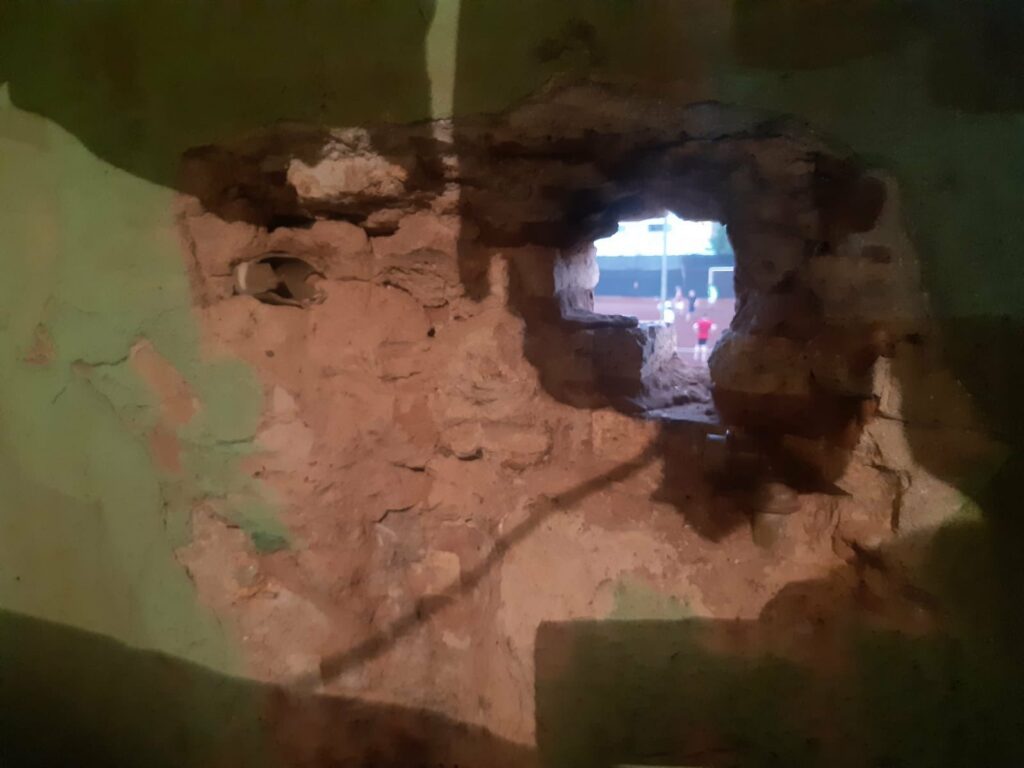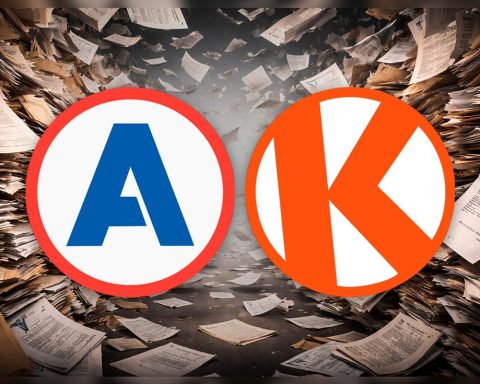The former government hierarch is an authorized voice to talk about economic issues (see at the end of the note). In this sense, Bergara commented on our consultation regarding the exchange rate delay and said that “let me start with something that economists call the Real Exchange Rate, which is the appreciation of our currency with the prices of what we import and export. This indicator is at the lowest level of the entire century, we have the largest exchange rate delay so far in the 21st century”.
And he recalled that “the dollar evolves very differently based on international conditions and, in general, in this context one has to aspire from the management of the Central Bank’s monetary policy to accompany the fluctuations of the dollar, there were very strong fluctuations in these years that made the dollar fall and in others the dollar strengthened”, he explained.
accompany the dollar
In this sense, “what one has to do, in a small country like Uruguay where the value of the dollar is very important because we are a country open to the world selling products and services, is to accompany that.”
In the Frente Amplio administrations when the dollar collapsed from the Central Bank “what we did was intervene in the Uruguayan market, which is very small and with relatively small amounts. So we went out to buy dollars and supported the price, even that allowed us to accumulate a lot of international reserves, which is a positive consequence”.
The low dollar affects agriculture, “to which it exports, to tourism, sectors that suffer, and when the dollar rises in the world and in Uruguay it falls, something is wrong, and the Central Bank should intervene there. That happened last year until October, when the dollar strengthened internationally and here it collapsed and the authorities looked the other way, just like now, ”he said.
The exchange rate delay
Before there was an exchange rate delay and we were already listening to the voices of the trade unions, he recalled, “as a counterpart, last year there were international prices that had risen so the situation was calm, but that already began to decrease a long time ago and very late in the day one begins to hear some voice for the exchange delay. There is an ideological and political element in this, but the situation is such that there are already business unions making their voices heard,” he said.
“I read statements by the president of the Uruguayan Secretariat for Wool that said why the Central Bank does not do what we did,” he said, “today the Central Bank is passive watching how this collapses and does not have the will to help in the situation by an ideological approach of deification of the market, which is very imperfect as is the exchange market of Uruguay”.
border situation
The situation on the border with Argentina is unusual. “It must be recognized that the difference is so beastly that it is very difficult for there to be government measures that compensate it, but at least measures must be applied that do not deepen that difference. The exchange rate collapse exacerbates the problem because it makes us more expensive, ”he remarked.
Mercosur common currency
As he pointed out before Lula’s recent statements about making a single currency, he said that “I don’t see any chance that we will walk towards having a Mercosur currency. Currency is not simply issuing a ticket, putting a number, the photo of a liberator and that’s it. The currency has to have an institutional support that has to do with macroeconomic balances, credibility, reputation. Look, Argentina cannot have a single currency, much less can we want to link up with the mess they have”.
“I think it makes no sense to consider a common currency, especially with countries that have so many distortions and instability,” he said.
Today the key issue in the world is the geopolitical conflict between the United States and China, he remarked “which is in sight and which goes beyond the monetary, financial and commercial aspects, it goes in cultural terms, of civilizing value. This conflict is going to be at the center of the world for the next 20 years and for a reason we are permanently receiving visits from high-ranking officials in the Defense area. You look at Latin America and the main trading partner of all countries is China.
Country image and reputation falls
“I am concerned about the column that was published in The Economist,” Bergara told EL ECO, “where for the first time in a long time the reputation of Uruguay begins to be questioned, a country that has been an example of institutional strength, credibility, low corruption, etc a note appears where it shows that the episodes in Uruguay such as the Astesiano case erode credibility”.
Today the Astesiano case is a criminal association, he said, “and a number of crimes of corruption that were orchestrated by the head of presidential security placed there by the President of the Republic himself, despite the warnings of his own co-religionists for Astesiano’s background. The president ignored the warnings and placed him in a place of power where he had access to all the information in the State, resources that he put at the service of corruption crimes. Astesiano is in prison, he confessed, but there is still a lot of information to be known, ”he said.
Who is it…
Mario Bergara received the title of Economist in 1987 and Public Accountant in 1990 from the University of the Republic. In 1998 he obtained his Ph.D. in Economics from the University of California at Berkeley, after completing a Master’s in Economics at that center a year earlier.
He worked at the Banco de la República Oriental del Uruguay and at the Central Bank of Uruguay. In the latter he was head of the Department of Economic Studies. Between 2001 and 2005 he was director of the Communications Services Regulatory Unit. He worked as a professor of Microeconomics, Macroeconomics and Industrial Organization at the ORT Uruguay University and currently teaches grade 5 at the University of the Republic, where he teaches the course “Economics of Regulation and Theory of Contracts”.

















